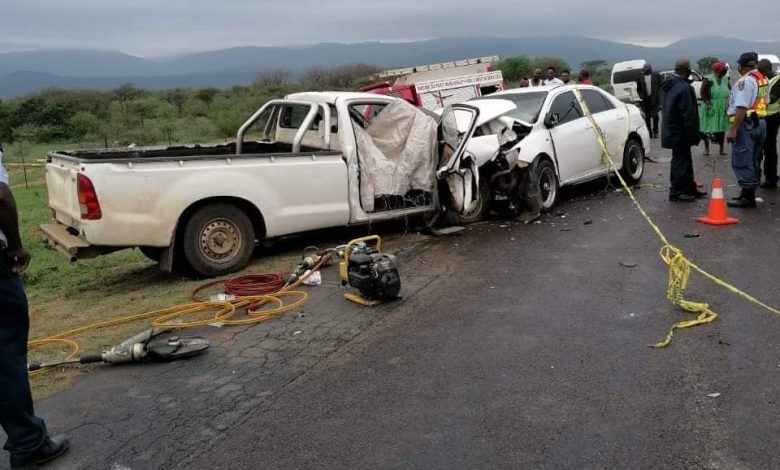Review Your Declined SRD SASSA Grant: A Step-by-Step

How to Review Your Declined SRD SASSA Grant: A Step-by-Step Guide
Getting news your SRD SASSA grant application was declined can feel like a punch to the gut. This grant is a lifeline for many struggling individuals and families in South Africa. When it doesn’t come through, the financial strain grows quickly. But a decline isn’t always the end of the road.
Understanding why your application was turned down is the first big step. Maybe it was a simple mistake or a data mix-up. This guide will walk you through checking your decline reason and show you exactly how to get your application reviewed. You can fix things and get the support you need.
Understanding Your SRD SASSA Grant Decline Reason
Knowing the reason behind your SRD grant rejection is key. Without this info, you can’t challenge the decision. Most rejections happen for clear, fixable reasons.
Common Reasons for SRD Grant Rejection
Sometimes, a quick check of the rules clears things up. Here are the common reasons why a grant gets declined:
- Eligibility Criteria Not Met: The SRD grant has strict rules about who can get it. Are you a South African citizen or permanent resident? Are you between 18 and 60 years old? Is your income below the set threshold? Go over the official SASSA SRD grant eligibility rules again. Make sure you meet every single one.
- Incomplete or Incorrect Information: Even a tiny mistake can stop your application cold. Did you type your ID number correctly? Are your banking details exactly right? A small typo in your ID number, for example, can make the system think you don’t exist, leading to an automatic decline.
- Conflicting Data from Other Government Databases: SASSA cross-checks your details with many other government bodies. They look at data from UIF, NSFAS, and even other grant systems. If their checks show you have income or support from other places, your grant may be declined. Social workers often confirm this data matching process helps prevent fraud.
- Already Receiving Other Government Support: Generally, you cannot get the SRD grant if you are already getting other types of government financial aid. This includes grants like the Child Support Grant or an Old Age Pension. This rule prevents people from getting double benefits.
How to Access Your Specific Decline Reason
SASSA makes it easy to find out why your application was declined. You just need your ID number.
- Via the SASSA Website/Portal: The easiest way to check is online. Go to the official SASSA SRD grant status checker. Type in your ID number and the phone number you used when you applied. The site will show your application status and the exact reason for any decline. Keep your phone number handy because they might send a one-time PIN to confirm it’s you.
- SMS Notifications (If Applicable): Sometimes, SASSA sends an SMS telling you your status. These messages often include a brief reason for the decline. Always check your text message history. Also, be sure the phone number registered with SASSA is still active.
The SRD SASSA Grant Appeal Process Explained
If you believe your grant was wrongly declined, you can appeal. An appeal is a formal request for SASSA to look at your application again.
Step-by-Step Appeal Application
The appeal process is straightforward if you follow the steps carefully. Don’t rush this part.
- Locating the Appeal Form: You’ll find the official SRD grant appeal form on the SASSA website. Look for a section specifically for SRD appeals. This is where you will state your case.
- Completing the Appeal Form Accurately: Fill out every part of the form. Make sure your ID number, contact info, and application reference number are all correct. Be very specific about why you think the first decision was wrong. Don’t just say “I need the money.” Explain why you meet the rules.
- Submitting Your Appeal: Most appeals are submitted online through the SASSA website. Some people also email or mail their appeals. Always keep a copy of your completed appeal form and any documents you send. This copy is your proof that you followed the process.
What to Include in Your Appeal Letter
Your appeal needs to be clear and strong. It should give SASSA all the information they need to change their mind.
- Personal Details and Reference Numbers: At the top of your appeal, list your full name, ID number, and the specific application reference number for the declined grant. This helps SASSA find your file quickly.
- Clear Explanation of Disagreement: Write down exactly why you think the initial decision was incorrect. For instance, if they said you had other income, but you don’t, explain that clearly. Point to the specific eligibility rules and show how you meet them.
- Supporting Documentation: This is crucial. If you were declined because of perceived UIF income, include a letter from UIF stating you don’t receive benefits. If your bank balance was too high, but you paid off a debt right after, provide bank statements showing that. Gather proof of income, bank statements, or proof of where you live if needed.
- Contact Information: Double-check your phone number and email address on the form. SASSA will use these to get in touch with you about your appeal.
Important Considerations During the Review and Appeal
Waiting for a decision can be tough. Knowing what to expect helps ease the stress.
Timeframes for Review and Decisions
Appeals take time. SASSA receives many requests, and they need to review each one carefully.
- SASSA Processing Times: SASSA usually takes a few weeks to review appeals. Official statements from SASSA suggest it can take 60 to 90 days, or even longer in some cases. It depends on how many appeals they are handling.
- Follow-Up Procedures: Try to avoid calling too often. This just slows down the system. The best way to check your appeal status is through the same online portal where you checked your decline reason. Official channels are always best for updates.
Keeping Your Information Up-to-Date
Life changes. Make sure SASSA knows about yours.
- Changing Personal Circumstances: If your address changes or you get a new phone number while your appeal is pending, tell SASSA right away. They need to be able to reach you. You can usually update your details through the SASSA online portal.
- Maintaining Active Communication Channels: Your phone number is vital. Make sure it stays active. This is how SASSA will send you updates or ask for more information.
Alternative Support and Next Steps
Even if your appeal is declined, there are still options for help. Don’t give up hope.
Exploring Other Social Grants
SASSA offers more than just the SRD grant. Maybe you qualify for something else.
- SASSA’s Broader Grant Portfolio: Look into other grants SASSA administers. These include the Child Support Grant, Disability Grant, or Old Age Pension. Each has its own rules.
- Eligibility for Other Programs: Beyond SASSA, look at what your local or provincial government offers. They might have social support programs or food assistance for those in need. Check their websites or local offices.
Seeking Assistance from Social Workers or NGOs
Professional help can make a huge difference. You don’t have to go through this alone.
- Professional Guidance: Social workers often help people with grant applications and appeals. They know the rules well and can offer great advice. Many community-based organizations and NGOs also provide free assistance with social grant applications.
- Community Support Networks: Reach out to community leaders or local support groups. They might know about resources you haven’t found yet. They can also offer emotional support during this tough time.
Frequently Asked Questions (FAQs) About Declined SRD Grants
Got more questions? Here are quick answers to common worries.
- Can I reapply immediately after a decline? No, you cannot reapply for the same period. You must go through the appeal process first. If your appeal is declined, you can usually apply again for a new period if the grant is still active.
- What if my banking details were incorrect? This is a common reason for decline. You need to update your banking details on the SASSA SRD website. Once updated, you might need to appeal the initial decline to get them to re-evaluate your application with the correct info.
- How do I know if my appeal was received? When you submit an online appeal, you usually get a confirmation message or a reference number. Always save this for your records.
- What if the appeal is also declined? If your appeal is declined, you might have limited options. It’s wise to speak with a social worker or legal aid if you still believe the decision is wrong. They can tell you if further steps are possible.
- Are there any fees associated with appealing? No, there are no fees to appeal a declined SRD SASSA grant. The process is completely free.
Conclusion
Getting a declined SRD SASSA grant doesn’t mean it’s over. You now know why it might have happened and how to review your situation. Understanding the reason for your decline, then putting together a strong appeal, is your path forward. Take each step carefully, keep your information correct, and be patient. It can be a tough process, but with the right effort, you can push for the support you deserve. Don’t wait. Take action and pursue your rightful grant today.




